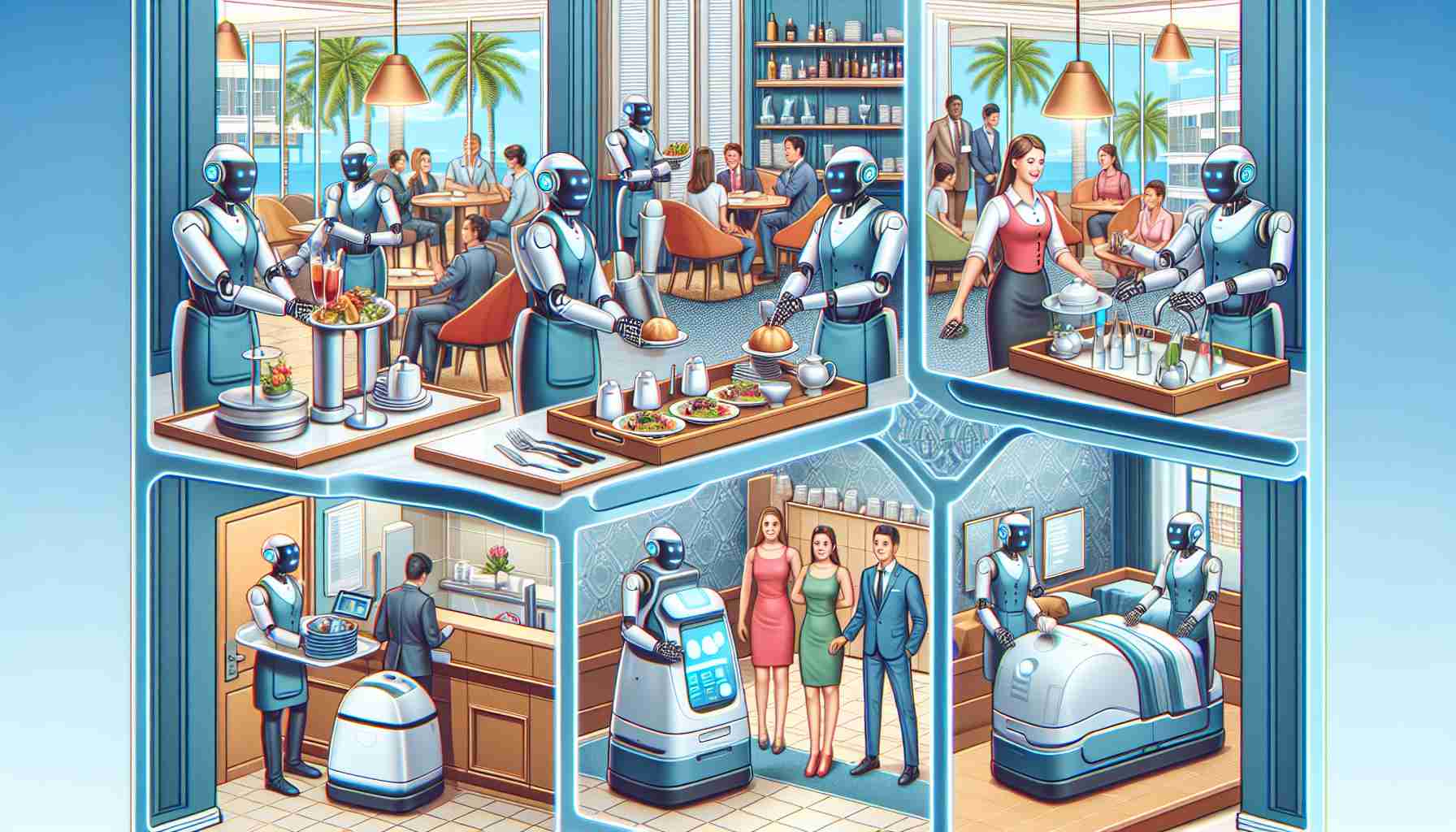The hospitality industry has always been known for its focus on exceptional customer service and personalized experiences. However, with advancements in technology, particularly in the field of robotics, the industry is undergoing a significant transformation. Robots are now being integrated into hotels and restaurants to enhance efficiency, improve customer experiences, and streamline operations.
In the past, hotels and restaurants relied heavily on human staff to perform various tasks, such as serving food, cleaning rooms, and providing information to guests. While humans are still essential in delivering the human touch and emotional connection that guests often seek, robots are now taking on specific roles to complement and support the workforce.
One such example is the introduction of robot concierges in hotels. These friendly and interactive robots are designed to assist guests with check-in processes, provide information about local attractions, and answer frequently asked questions. They are programmed with vast amounts of data and can provide accurate and instant responses to guest inquiries, saving time and enhancing overall customer satisfaction.
In restaurants, robots are being deployed to take orders and deliver food to tables. By automating these tasks, restaurants can improve order accuracy and speed up service, particularly during peak periods. This not only benefits the customers but also allows human staff to focus on more complex tasks, such as providing recommendations and creating memorable dining experiences.
Additionally, robotic technology is also being utilized in the housekeeping department of hotels. Robots equipped with advanced sensors and algorithms can efficiently clean and sanitize guest rooms, reducing the workload for human staff and ensuring higher levels of hygiene and cleanliness.
While robots are undoubtedly transforming the hospitality industry, it’s important to recognize that they are not replacing humans entirely. The integration of robots should be seen as a collaborative effort, where robots handle repetitive and mundane tasks, allowing human staff to focus on delivering exceptional service and building personal connections with guests.
As the technology continues to evolve, we can expect to see even more innovative applications of robotics in the hospitality industry. From automated luggage handling to robot bartenders, there is no doubt that robots are revolutionizing the way hotels and restaurants operate. However, the human touch and personalized service will always remain at the core of the industry, ensuring that guests feel valued and cared for during their stay.
The hospitality industry is an ever-evolving sector that is constantly adapting to changes in consumer preferences and technological advancements. With the rise of robotics, the industry has been able to enhance efficiency and improve customer experiences.
According to market forecasts, the market size of the global hospitality robots market is expected to reach $3.73 billion by 2023, growing at a CAGR of 16.7% from 2018 to 2023. This significant growth is driven by the increasing need for automation and the demand for enhanced operational efficiency in hotels and restaurants.
One of the key issues related to the adoption of robotics in the hospitality industry is the potential impact on employment. While robots are being utilized to perform certain tasks, there is concern about job displacement for human workers. However, proponents argue that robots can actually create new job opportunities by allowing human staff to focus on higher-value tasks and delivering more personalized experiences to guests.
Another challenge is the initial investment required for implementing robotic technology. The cost of purchasing and maintaining robots can be significant for businesses, especially smaller establishments. However, as the technology becomes more widespread and advances in efficiency, it is expected that the costs will decrease, making it more accessible for a wider range of businesses.
Robots in the hospitality industry also raise questions about data security and guest privacy. As robots interact with guests and collect data, there need to be robust security measures in place to protect sensitive information. Hoteliers and restaurateurs must ensure that they comply with data protection regulations and implement safeguards to mitigate any potential risks.
Despite these challenges, the integration of robotics in the hospitality industry offers numerous benefits. It enables businesses to streamline operations, increase efficiency, and improve customer satisfaction. By leveraging robotics, hotels and restaurants can enhance their competitiveness in a rapidly evolving market.
To learn more about the latest advancements in robotics and their impact on the hospitality industry, visit HospitalityNet. This website offers a wide range of articles and resources related to the industry, including insights into emerging technologies and trends.
In conclusion, the integration of robotics in the hospitality industry is revolutionizing the way hotels and restaurants operate. While robots are taking on tasks that were traditionally performed by humans, the industry recognizes that human touch and personalized service will always remain essential. By leveraging robotics, businesses can enhance operational efficiency, improve customer experiences, and stay ahead in a competitive market.
